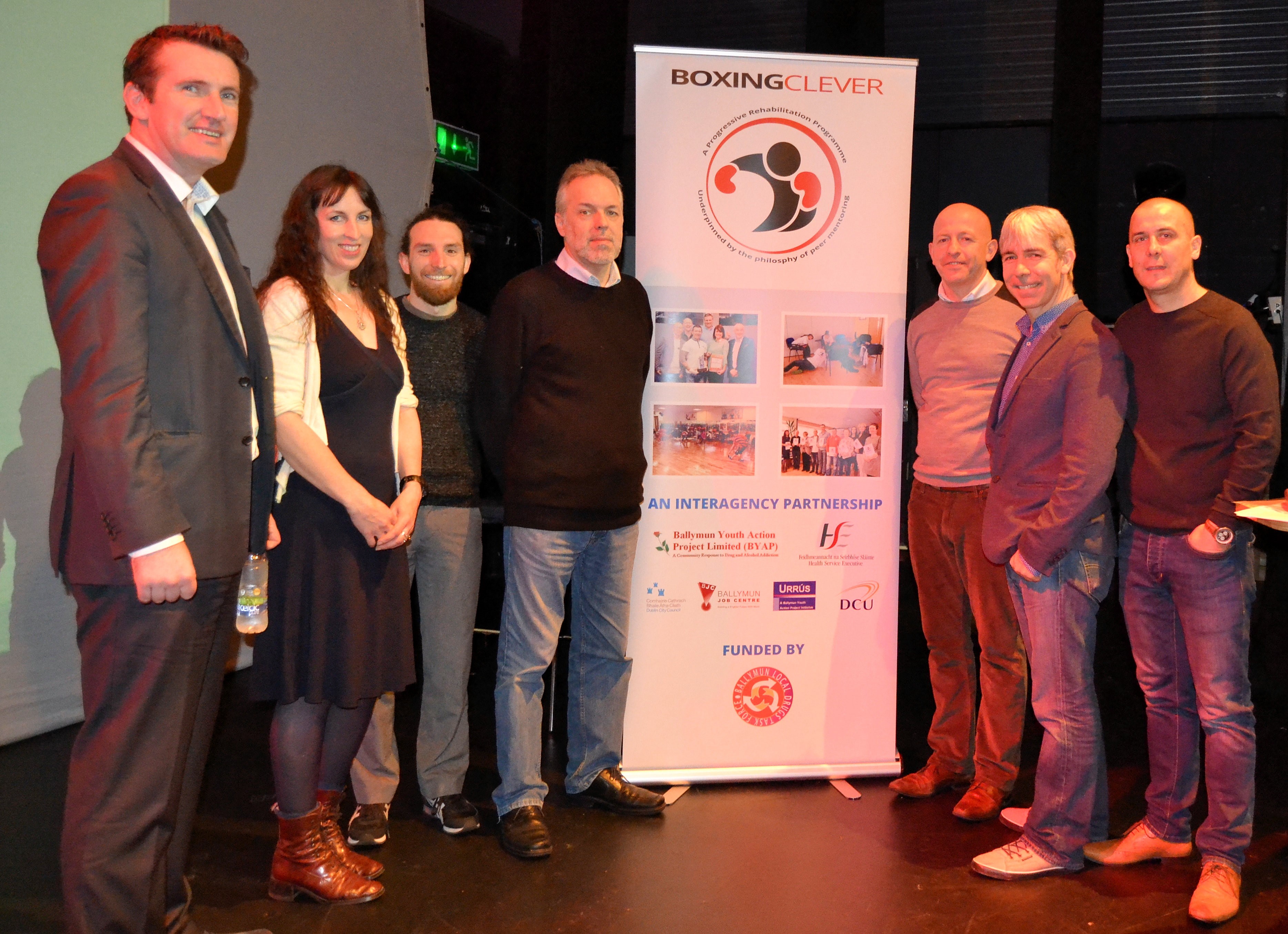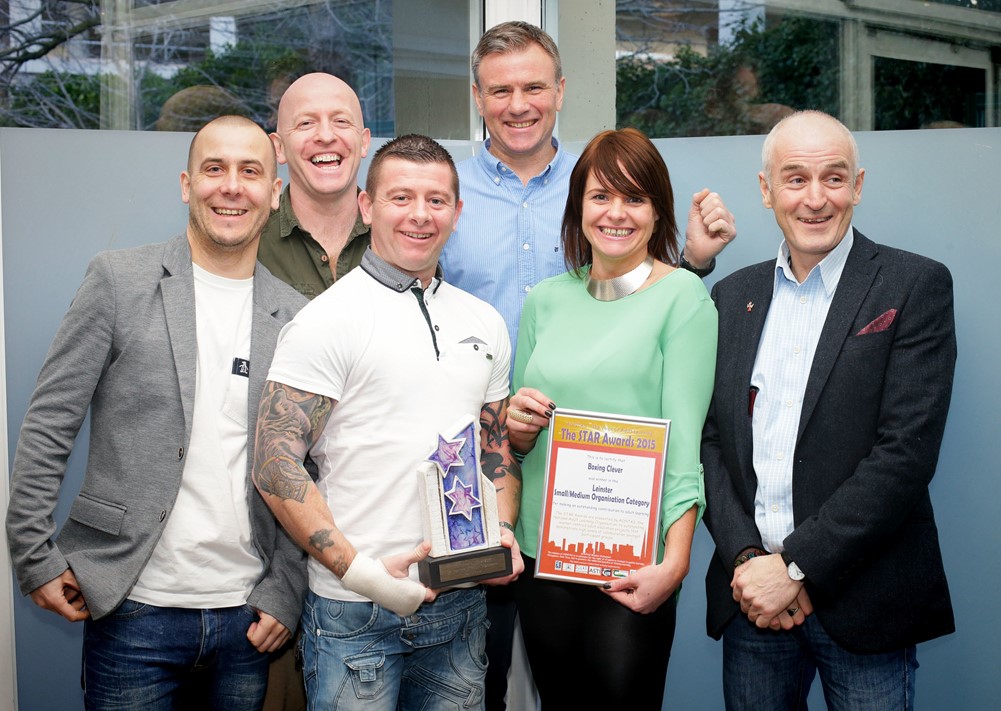Boxing Clever: The role of education and fitness in building recovery capital
 Boxing Clever: The role of education and fitness in building recovery capital
Boxing Clever: The role of education and fitness in building recovery capital
Education and fitness can be key in building recovery capital in the lives of those seeking intervention for addiction, according to recent research on the progressive rehabilitation programme Boxing Clever. Running for the previous five years, the programme was evaluated in 2014-15 in partnership with University College Dublin, and since then the practitioners and researchers involved have continued to discuss and debate the issues identified in the research, contributing to local, national and international fora. The programme evaluation was presented at Lisbon Addictions 2017, the second European Conference on Addictive Behaviours and Dependencies in October 2017.
The programme
The programme is a 20 week community based rehabilitation programme involving up to 25 individuals, who undertake 8.5 hours per week of educational, physical and substance use rehabilitation activities provided on a group basis. It is designed to offer support for people who are stable and drug free or continuing to use substances and already accessing some type of health, welfare or substance use support within the community. This approach recognises that recovery is often an ongoing process The programme is offered to both current and abstinent drug users, recognising the possible mentoring effect that may occur within the programme and to address the fact that educational courses are often only offered to those who have stabilised their drug use or are currently abstinent. The programme includes two adult education QQI accredited awards in Health-Related Fitness (level 4) and Community Addiction Studies (CASC, Level 5) and involves physical training, boxing skills and tailored fitness training. Programme participants also have access to one-to-one key working support as they need it as well as access to sports and fitness training facilities as part of the programme.
The Research
The research was completed as part of the research alliance between the UCD Community Drugs Programme and Ballymun Youth Action Project and was completed between November 2013 and September 2015. The change processes and outcomes for participants engaging in a twenty- week community based integrated fitness and education substance use rehabilitation programme were explored. Programme participants were a mix of abstinent and current substance users. The study utilized a mixed methods design, combining process and outcome data collection with focus group interviews with programme participants (n=17) and practitioners (n=8) midway and on completion of the programme.
The research found that education and fitness helped contribute to the building of recovery capital in the lives of those seeking positive change in relation to their substance use, adding further evidence to the idea that a paradigm shift away from abstinence or treatment episode based approaches is required. A range of further elements were found to be important in supporting recovery and the development of personal, social and community capital. These included; the role of education in reducing substance use and impacting positively on family relationships; positive re-engagement with communities; the relationship developed between the coaches and participants; the physical impact of the training on participants; the mechanisms by which gender norms were challenged within the boxing gym environment; and the role and impact of the mentor on the programme. The positive attributes associated with the ‘boxer’ identity has the potential to provide an alternative to ‘the addict’ identity within socially disadvantaged communities.
Further actions
Since completing the research, the researchers and practitioners involved have continued to discuss and debate the issues at hand, publishing an academic journal articles, presenting at international conferences and making a film on the programme and research findings. The Boxing Clever programme went on to win an Aontas Award (Leinster Region) and at the end of last year a research and policy briefing was launched, together with a film showing and policy debate, all with a view to supporting funders, practitioners, service users and service providers to consider their own role in promoting recovery capital within intervention.
Links and resources
The Boxing Clever Research Findings Short Film. Dublin, Ireland. https://www.youtube.com/watch?v=hYcHMb6K_-M. This film was funded by the UCD College of Social Sciences and Law funding scheme under the innovation and impact theme.
Morton, S., O'Reilly, L. & O'Brien, K. (2016) Boxing clever: utilizing education and fitness to build recovery capital in a substance use rehabilitation programme. Journal of Substance Use http://www.tandfonline.com/doi/abs/10.3109/14659891.2015.1077281
Morton, S., O’Reilly, L. & O’Brien, K. (2015) Boxing Clever: Exploring the impact of a substance use rehabilitation programme. Dublin: Ballymun Youth Action Project. http://www.byap.ie/wp-content/uploads/2015/02/Boxing_Clever_Exploring_the_impact_of_a_substance_use_rehabilitation_programmeme_Feb_2015.pdf
Durcan, M. & Morton, S. (2016) Boxing Clever: Research and Policy Briefing. Dublin: Ballymun Local Drug and Alcohol Task Force.
Further information
Dr Sarah Morton
Director of Community Partnership Drug Programme
School of Social Policy, Social Work and Social Justice
Phone: 01 7168582
Email: sarah.morton@ucd.ie
Karl O’Brien
Community Addictions Counsellor
Ballymun Youth Action Project
Phone: 01 8428071
Email: karlob@byap.ie













